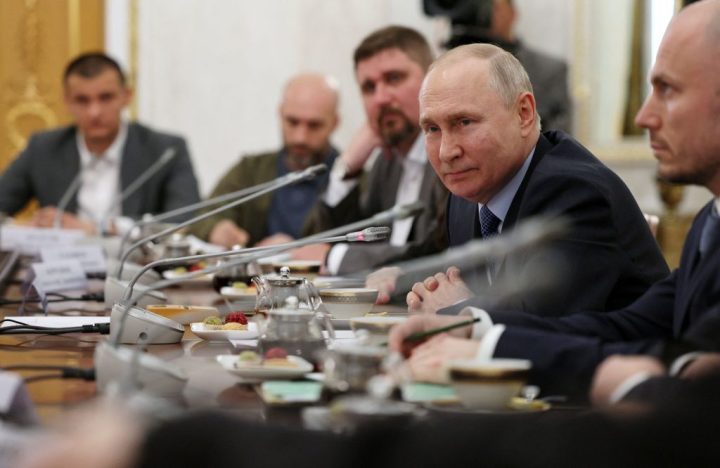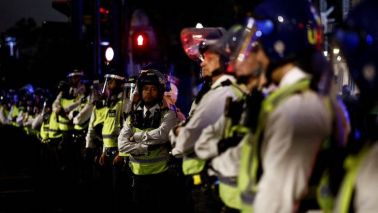Lately Vladimir Putin has been strikingly unwilling to subject himself to any serious debate about his war in Ukraine. On Tuesday, he came the closest yet, spending more than two hours talking to war correspondents working for either the state media or nationalist social media channels. It was hardly an inquisition, but there were some interesting insights into his thinking to be gleaned.
Despite the clear evidence of a steady contraction in the Kremlin’s aspirations and expectations from the original intent to conquer the whole of Ukraine, he refused to accept that the goals of the ‘special military operation’ had changed in any way. Rather, he asserted, that although they may alter the detail ‘in accordance with the current situation, but in general, of course, we will not change anything, and they are of a fundamental nature for us’.
While claiming confidence, Putin seems to be lining up a list of potential scapegoats in case things go wrong
In many ways this was a direct rebuttal of recent suggestions that some kind of peace deal and thus compromises might be necessary.

Britain’s best politics newsletters
You get two free articles each week when you sign up to The Spectator’s emails.
Already a subscriber? Log in







Comments
Join the debate for just £1 a month
Be part of the conversation with other Spectator readers by getting your first three months for £3.
UNLOCK ACCESS Just £1 a monthAlready a subscriber? Log in